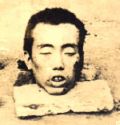Occult claims clamor for serious studyA telepathy study, presented at a meeting of the British Association for the Advancement of Science, involved 63 people asked to say in advance which of four friends or relatives was calling on the telephone.
The session featured research from Rupert Sheldrake, an independent biologist who is funded by Trinity College, Cambridge, that claims to have found evidence that some
people know telepathically who is calling them before they answer the telephone. The answers were 45 percent correct, which, the researchers claimed, was above the 25 percent expected through chance. A host of angry British scientists said telepathy is "a charlatan's fancy".
"Either I or the scientist is a fool with our opposing views of probability,'' wrote William James, the famed American psychologist and philosopher 100 years ago regarding another famous experiment.
The risk of appearing foolish, he believed, was the least of the dangers. There also was the risk of failing to investigate the world in all its dimensions, or making it appear smaller and less interesting than it really is.
He worried about a time when people would become "indifferent to science because science is so callously indifferent to their experiences".
[
He worried also that a close-minded community of science could become a kind of cult itself, devoted to its own beliefs and no more.]
Discussion between Rupert and a skeptical Prof Peter Atkins
Professor Peter Atkins, who is a chemist at Lincoln College Oxford: You can’t rely on any of these experiments. There is no serious work done in this field. The samples that people use are very tiny, the effects are statistically insignificant, the controls are not done in a scientific way. On the whole there’s just no point in doing it. There are no serious reasons for believing there should be an effect of telepathy anyway. There is no mechanism within modern science to account for it. There’s nothing that drives people to believe in it except sentiment, emotion, and things like that.
[Sheldrake is] just playing with statistics.
Interviewer: Let’s put that to Rupert. Rupert Sheldrake, he says you’re just playing with statistics. He doesn’t believe a word of it. What do you say to him?
Rupert Sheldrake: Well I’d like to ask him if he’s actually read the evidence? May I ask you Professor Atkins if you’ve actually studied any of this evidence or any other evidence?
Atkins:
No, but I would be very suspicious of it.





 Professor Peter Atkins, who is a chemist at Lincoln College Oxford: You can’t rely on any of these experiments. There is no serious work done in this field. The samples that people use are very tiny, the effects are statistically insignificant, the controls are not done in a scientific way. On the whole there’s just no point in doing it. There are no serious reasons for believing there should be an effect of telepathy anyway. There is no mechanism within modern science to account for it. There’s nothing that drives people to believe in it except sentiment, emotion, and things like that.
Professor Peter Atkins, who is a chemist at Lincoln College Oxford: You can’t rely on any of these experiments. There is no serious work done in this field. The samples that people use are very tiny, the effects are statistically insignificant, the controls are not done in a scientific way. On the whole there’s just no point in doing it. There are no serious reasons for believing there should be an effect of telepathy anyway. There is no mechanism within modern science to account for it. There’s nothing that drives people to believe in it except sentiment, emotion, and things like that.




